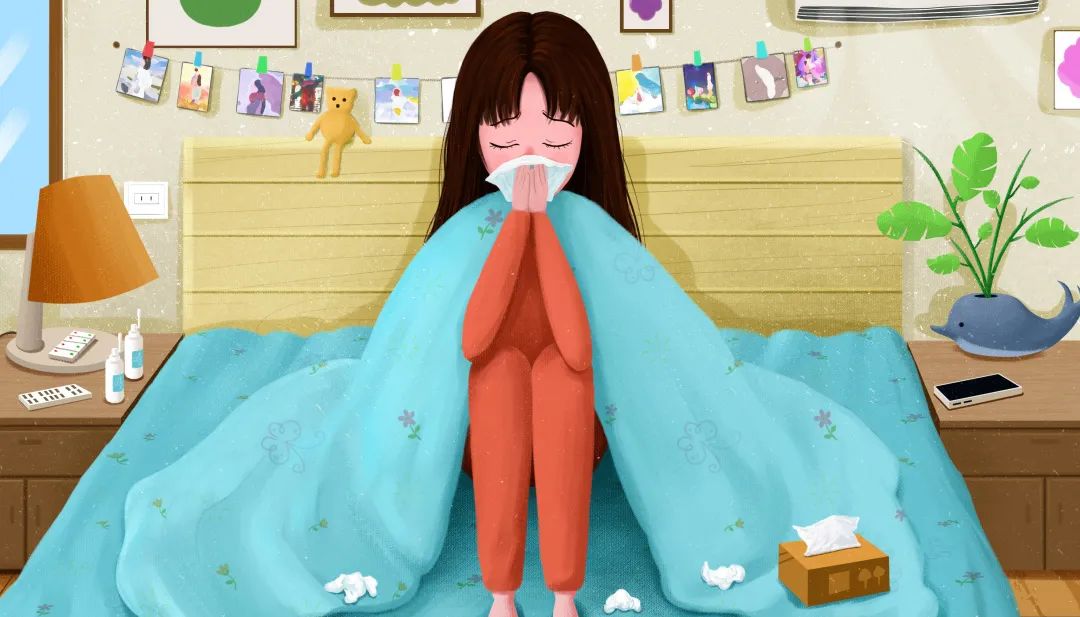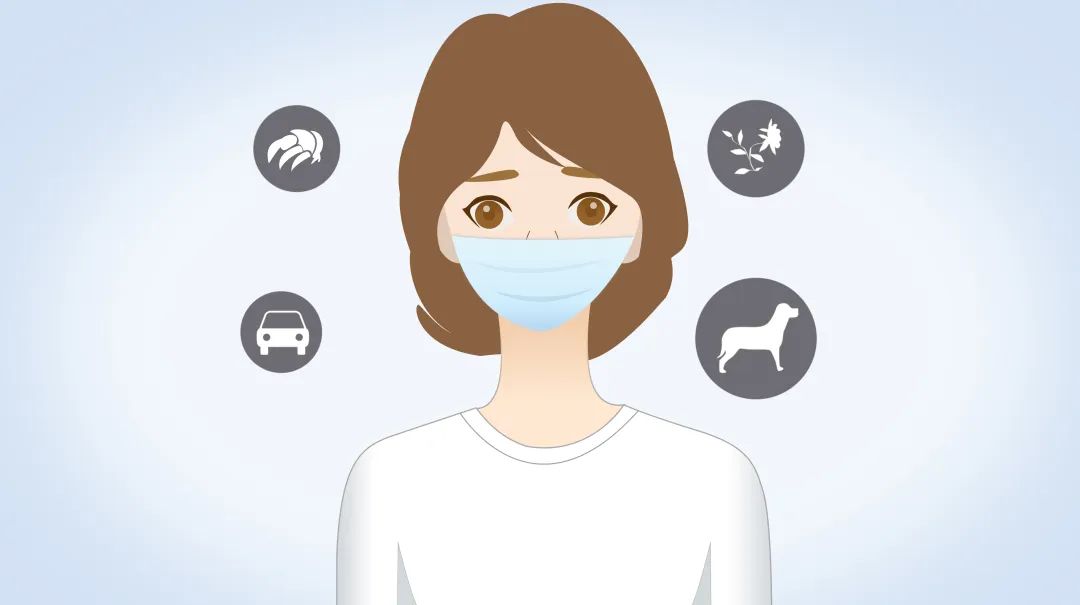Three reminder to prevent allergic rhinitis
Author:Healthy China Time:2022.07.08
Dynamic rhinitis, also known as allergic rhinitis (AR for short), is a non -infectious inflammation that occurs in the nasal mucosa. It is a type I supervisor that is mainly mediated by immunoglobulin E (IGE) after allergens. The pathogenesis mechanism is very complicated, and it is not completely clear.
In recent years, the significant increase in the prevalence of allergic rhinitis in China has a lot to do with the changes in our environment, climate and lifestyle. Allergic rhinitis can not only lead to lack of work, low learning and work efficiency, limited daily activities, and sleep disorders. It can also cause mental and psychological problems. It seriously affects the physical and mental health and quality of life of patients (especially children), which requires great attention.

In May 2022, the "Guidelines for the Diagnosis and Treatment (2022, Revised Edition)" and "Treatment and Treatment Guide (2022, Revised Edition)" and "Amendment Edition)" and "2022) were released. The two new guidelines further comprehensively explained the diagnosis and treatment of allergic rhinitis.
Not only do you want to treat
First of all, formulating a comprehensive environmental control plan at the prevention level is an important measure. The purpose is to avoid or reduce contact with known allergens, various stimulus and air pollutants (such as PM2.5, car exhaust, indoor organic volatilization Things), this is particularly important for children.
Differential nasal conjunctivitis is mainly caused by various qi -to -allergic pollen, so it is also called pollen. In the early spring, it is mainly trees pollen. It is more common in the spring of forage, and in the summer and autumn seasons, weeds are mainly weed. After the autumn, a large number of artemisia grass, coriander, and dolphin granic flour floats in the northern region of my country, causing very serious nasal conjunctivitis, and even bronchial asthma, which causes great pain to patients.

The allergic symptoms of many patients with allergic rhinitis can be significantly improved by taking environmental control measures. For example, when pollen allergies do outdoor activities, wearing protective masks and protective glasses; for dust mites (including house dust mites, dust mites, tropical mites, etc.), you can control indoor temperature and humidity, reduce the source of food and survival of dust mites, and survive Regional, dust -proof mites material isolation, air -conditioning filter ingredients, cleaning and cleaning, heat treatment or frozen dust mites and other comprehensive measures to prevent and control; those who are allergic to pet dandruff and other pet dandruff are recommended to stay away from pets. Pets, etc.
Drug treatment avoidance
In terms of treatment, drug treatment is the main method of clinical symptomatic treatment, and specifically advocates regulatory medication. The onset of allergic rhinitis is the high reactivity and allergic inflammation of the nasal mucosa, while the glucocorticoids (referred to as hormones) are currently the strongest non -specific anti -inflammatory drugs, so it is the most important first -line drug for treating allergic rhinitis. The use of hormone sprays in the nasal cavity is the first choice for patients with medium -weight sustainable allergic rhinitis. Due to the persistent state of nasal mucosa inflammation, continuous treatment is very necessary. The course of treatment should usually last 4 to 12 weeks. It is not advisable to stop the medicine prematurely, let alone stop and use it regularly. At present, the general biological utilization of nasal injection hormones commonly used is low, the body absorption is small after nasal spraying, and the safety and tolerance are good. Long -term treatment has no significant effect on children's growth and development for a long time, and can be used with confidence.

Antimamines (H1 receptor antagonists) and antibladiene drugs (leukendne receptor antagonists) are also first -line drugs for treating allergic rhinitis. Especially in the treatment of children's allergic rhinitis, it is recommended to use a second -generation anti -group amine medicine without drowsiness and side effects to avoid suppression of the central nervous system and affect cognitive function. The efficacy and safety of some new second -generation oral anti -group amine drugs in children with more than 6 months have been verified. Anti -leukene drugs have a significant improvement in the symptoms and quality of life of patients with allergic rhinitis. It is better to combine with the second -generation antibody amine drug or nasal injection.
Generally speaking, clinically, allergic rhinitis with milder symptoms and intermittent seizures can achieve satisfactory effects with nasal rhinitis, antibody amine or anti -whitenhene drugs, but for medium -weight continuous allergies Rhinitis, it is recommended to use antihistamine and anti -leukene drugs on the basis of preferred nasal injection hormones to enhance the treatment effect and better improve stubborn symptoms.
Another drug is worth mentioning, that is, the nasal injection reduction agent favored by patients is called "net red medicine", because it can quickly relieve nasal congestion symptoms after spraying into the nasal cavity, which makes people feel "cool". However, it is reminded that the continuous medication of nasal injection should be controlled within 2 weeks. If the use time is too long and too frequent, it can cause medicinal rhinitis. Especially children should use lower concentration preparations.
Early acceptance of children's desensitization treatment
In addition to the symptomatic treatment of the drugs introduced above, we must pay more attention to the treatment of the cause. Allergic rhinitis is caused by allergens and allergens, so it is very important for the specific immunotherapy of allergens. Allergen immunotherapy is commonly known as "desensitization therapy". It is the only treatment method for allergic rhinitis and allergic asthma, such as allergic rhinitis and allergic asthma.

The desensitization therapy uses a special allergen vaccine. It is administered through the subcutaneous injection or under the tongue. As the dose increases, the immune regulation effect is generated to rebuild the body's immune tolerance function. Children's patients' early acceptance of desensitization can block further development into asthma and can produce long -term efficacy, which is of great significance to the prognosis of the disease. However, the domestic status quo is a variety of standardized allergen vaccines for clinical use, mainly for house dust mites and dust mites desensitization preparations, so it has largely restricted the promotion and popularization of dedivisions. What is encouraged is that in 2021, the drip under the tongue of domestic Huanghua pollen allergens was officially approved for the clinic, bringing the gospel to patients with allergies in the northern autumn. Allergic rhinitis is a chronic disease. Although it is still difficult to cure, under the guidance of scientific prevention and control, through a standardized comprehensive prevention and control strategy, the patient's various symptoms are expected to be controlled for a long time and significantly improve the quality of life.
Author: Jiangsu Provincial People's Hospital Allergic Diagnosis and Treatment Center
Cheng Lei Lu Meiping Montech
Review: National Health Science Popularization Expert Library Expert
Zhang Luo, a professor at Beijing Tongren Hospital affiliated to Capital Medical University
Planning: Wu Wei Hong Tan Jia
Edit: Luan Zhaolin
- END -
Bar reproductive medical experts of Zhongda Hospital to prepare for pregnancy secrets

The annual Father's Day is coming, and many couples who are eager to upgrade often...
The hot stone pier is a "dysmenorrhea killer"?Gynecologist: It is not recommended to try

Medical Guidance: Director of Gynecology, Fifth Affiliated Hospital of Southern Me...